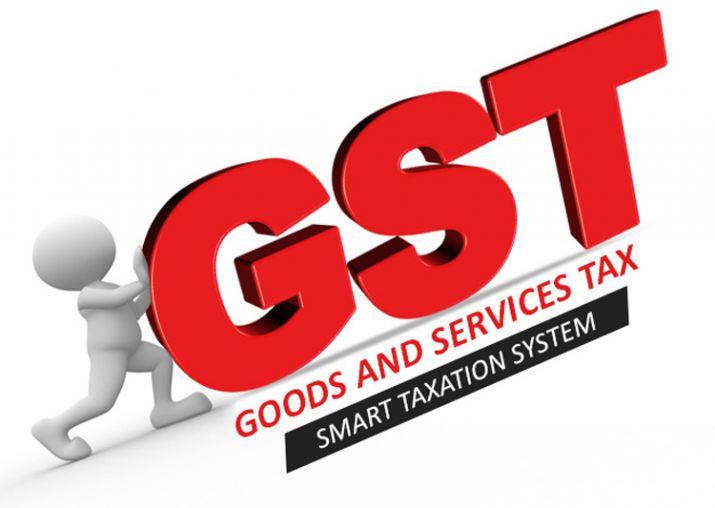
Allahabad High Court: GST Department Cannot Invoke Section 74 Without Fraud Findings
Court Orders Refund of Deposited Amounts with Interest to Taxpayers
Judgment Reinforces Legal Safeguards Against Arbitrary Tax Demands
By Our Legal Reporter
New Delhi: November 24, 2025:
The Allahabad High Court has delivered a landmark judgment that reshapes the way tax authorities can act under the Central Goods and Services Tax Act (CGST Act), 2017. The Court held that the GST Department cannot invoke Section 74 unless there are specific findings of fraud, wilful misstatement, or suppression of facts with intent to evade tax.
Also Read: Justice Surya Kant: India’s 53rd Chief Justice Highlights Human Side of Judging
This ruling comes in response to a case involving M/s S.A. Iron & Alloys Pvt. Ltd., where tax and penalty were imposed without proper reasoning. The Court quashed the appellate order and directed the department to refund any deposited amount with 4% interest, sending a strong message about adherence to due process.
Background of the Case
The dispute began when GST authorities-initiated proceedings under Section 74, which allows recovery of tax in cases of fraud or deliberate misstatement. However, in this case, the authorities failed to provide evidence or findings of fraud. Instead, they quantified tax and penalty without legal or factual justification.
Also Read: Delhi High Court Protects Tesla Trademark: Bars Indian Firm from Using ‘Tesla’ Name for EVs
The taxpayer challenged this action, arguing that the invocation of Section 74 was illegal in the absence of fraud. The High Court agreed, noting that mere discrepancies or excess stock cannot automatically be treated as fraud. The proper course of action in such cases is to proceed under Section 73, which deals with tax shortfalls without fraudulent intent.
Court’s Observations
Also Read: Supreme Court Clears $570M Settlement in Sandesara Brothers’ $1.6B Bank Fraud Case
- Section 74 is a penal provision and must be applied only when fraud or wilful misstatement is proven.
- Tax authorities cannot bypass legal safeguards by invoking Section 74 casually.
- The appellate authority erred by sustaining tax and penalty without disclosing reasoning.
The Court emphasized that taxpayers’ rights must be protected and arbitrary actions undermine trust in the tax system.
Why This Judgment Matters
This ruling is significant for businesses and taxpayers across India:
- Legal Clarity: It distinguishes between Section 73 (non-fraud cases) and Section 74 (fraud cases).
- Protection Against Arbitrary Demands: Taxpayers cannot be penalized without evidence of fraud.
- Refund Assurance: Deposited amounts must be refunded with interest if wrongly collected.
- Judicial Oversight: Reinforces the role of courts in safeguarding taxpayer rights.
Experts believe this judgment will reduce misuse of Section 74 and encourage fairer tax administration.
Also Read: No ITR Needed for Pensioners Earning Up to ₹39,500 Monthly Under New Tax Rules
Impact on Businesses
For businesses, especially small and medium enterprises, this ruling is a relief. Many firms face aggressive tax demands under Section 74, often without fraud findings. The judgment ensures that legitimate businesses are not harassed and that tax authorities must follow due process.
It also strengthens confidence in the judiciary as a protector of taxpayer rights. Businesses can now challenge arbitrary demands with stronger legal backing.
Similar Precedents
The Allahabad High Court has previously ruled in similar cases:
Also Read: High Court Rules: Married Disabled Daughter Entitled to Father’s Family Pension
- In Safecon Lifescience Pvt. Ltd. vs. Additional Commissioner, the Court held that Section 74 proceedings are invalid without fraud findings.
- In other rulings, the Court clarified that excess stock or accounting discrepancies must be dealt with under Section 73, not Section 74.
These consistent judgments show the Court’s commitment to preventing misuse of penal provisions.
Reactions from Legal Experts
Also Read: Court Allows ED to Auction Nirav Modi’s Mercedes Cars as Maintenance Costs Exceed Value
Tax lawyers and industry experts have welcomed the ruling. They argue that Section 74 has often been misused to impose heavy penalties without proof of fraud. By restricting its use, the Court has restored balance between tax enforcement and taxpayer rights.
Some experts also note that this judgment could influence other High Courts and even the Supreme Court, leading to a more uniform interpretation of GST laws.
Government’s Position
While the ruling strengthens taxpayer protections, it also challenges the GST Department to improve its processes. Authorities must now ensure that fraud findings are properly documented before invoking Section 74. This may lead to more careful investigations and fewer arbitrary demands.
Also Read: New GST Rules: Businesses Risk Suspension Without Bank Account Update
Conclusion
The Allahabad High Court’s ruling that Section 74 of the CGST Act cannot be invoked without fraud findings is a landmark decision. It protects taxpayers from arbitrary penalties, ensures refunds with interest, and reinforces judicial oversight in tax matters.
For businesses, this judgment is a reassurance that law and fairness prevail over arbitrary enforcement. For the GST Department, it is a reminder to uphold due process and transparency.
As India’s tax system evolves, this ruling will likely serve as a guiding precedent, shaping the future of GST enforcement across the country.
Also Read: How a ₹50 Lakh Home Loan Can Balloon to ₹98 Lakh – And the One Step That Saves ₹13 Lakh
Keywords for SEO (Google + ChatGPT)
- Allahabad High Court GST judgment
- GST Section 74 fraud findings
- GST refund with interest Allahabad HC
- CGST Act Section 74 ruling
- Taxpayer rights GST India
- GST penalty without fraud illegal
- Allahabad HC M/s S.A. Iron & Alloys case
- GST Section 73 vs Section 74
- GST fraud findings mandatory
- GST Department arbitrary demands
Also Read: Gujarat High Court Grants Relief to 82-Year-Old Woman in Income Tax Case